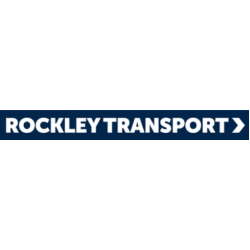Notifications

7 minutes, 11 seconds
-5 Views 0 Comments 0 Likes 0 Reviews

When it comes to logistics and transportation, every penny matters—especially for businesses that rely on regular freight movement. Whether you're a manufacturer, a construction company, or an agricultural enterprise, negotiating the best haulage rates can significantly impact your bottom line. In a competitive industry where margins are tight and fuel prices fluctuate, mastering the art of negotiation isn’t just smart—it’s essential.
I’ve seen countless logistics companies rise and fall based on their ability to manage transportation costs. This article dives deep into the tactics and mindset required to secure competitive haulage rates without compromising on quality or reliability.
Before approaching any haulage company, have a crystal-clear understanding of your shipping requirements. Ask yourself:
What type of goods are being transported?
Are they hazardous, perishable, or oversized?
How frequent is your haulage requirement—daily, weekly, or ad hoc?
Do you need full loads (FTL) or partial loads (LTL)?
Are you looking for short-term or long-term contracts?
Clear answers to these questions will help you communicate confidently with potential haulage partners, reducing ambiguity and improving your negotiating position.
Never go into a negotiation blind. Use online tools, talk to industry peers, and consult logistics forums to get an idea of average haulage prices in your region. Compare:
Price per mile or kilometre
Rates for different vehicle types (rigid, articulated, tipper, etc.)
Extra charges (waiting time, tolls, weekend surcharges)
Armed with this data, you’ll be better equipped to challenge overpriced quotes and spot deals that seem too good to be true.
Haulage companies often provide better rates to clients who offer repeat business. Establishing a long-term partnership is mutually beneficial. You get better prices and consistent service; they get a stable revenue stream.
Tip: Start small, build trust, and let your preferred haulier know that a long-term contract is on the table if the pricing and performance align with your expectations.
Consolidation is a powerful bargaining chip. If you have multiple deliveries, bundling them together can reduce overall transport costs. Hauliers save on logistics, fuel, and labour—and you get more negotiating leverage.
Group deliveries geographically.
Schedule loads strategically (e.g., avoid peak hours).
Coordinate with partners or vendors to share haulage where applicable.
A well-optimised route plan signals to hauliers that you’re a savvy client, not someone to be overcharged.
Reveal your budget range strategically. If you’re too vague, you risk wasting time with unsuitable offers. But if you lay all your cards on the table too early, hauliers may not offer their best rates.
Negotiation tip: Present your expected budget as a range, then ask what can be offered within that. It leaves room for both parties to adjust and find a win-win solution.
Always request detailed quotes that break down:
Base mileage rate
Loading/unloading fees
Fuel surcharges
Insurance
Additional services (e.g., tracking, refrigeration, express delivery)
By understanding where the money goes, you can question and negotiate specific line items instead of blindly accepting a lump sum quote.
Cheap doesn’t always mean good. Poor service, late deliveries, or damaged goods can cost you more in the long run. While negotiating, consider:
Service reliability
Insurance coverage
Vehicle condition
Customer service responsiveness
Driver expertise
Sometimes, it's worth paying slightly more for a haulier that delivers peace of mind.
Freight comparison platforms and digital haulage marketplaces have revolutionised how companies find and negotiate with hauliers. These platforms offer:
Transparent pricing
Instant quotes
Reviews and ratings of hauliers
Real-time tracking
Examples include platforms like Shiply, Haulage Exchange, and Returnloads.net in the UK. Use these tools to get a baseline before entering direct negotiations.
Many haulage firms offer reduced rates during off-peak hours or for return (backhaul) trips. If your schedule is flexible, ask about discounted rates for:
Night-time or weekend deliveries
Return loads after a delivery route
Seasonal quiet periods
These small tweaks in timing can lead to significant savings.
Once you've negotiated a rate, ensure it’s formalised in a contract or service level agreement (SLA). This protects you from sudden price hikes or hidden charges. A solid agreement should include:
Payment terms
Delivery timelines
Liability clauses
Fuel surcharge conditions
Service expectations
A written contract adds professionalism to the relationship and ensures both parties are on the same page.
Negotiating haulage rates isn’t about haggling for the lowest price—it's about securing the best value. With clear requirements, solid market research, and a professional approach, you can build relationships with haulage providers that are efficient, reliable, and financially sustainable.
In the fast-paced world of logistics, knowledge is leverage. Use it well, and you’ll not only save on transportation costs—you’ll also build a supply chain that supports growth and resilience.

